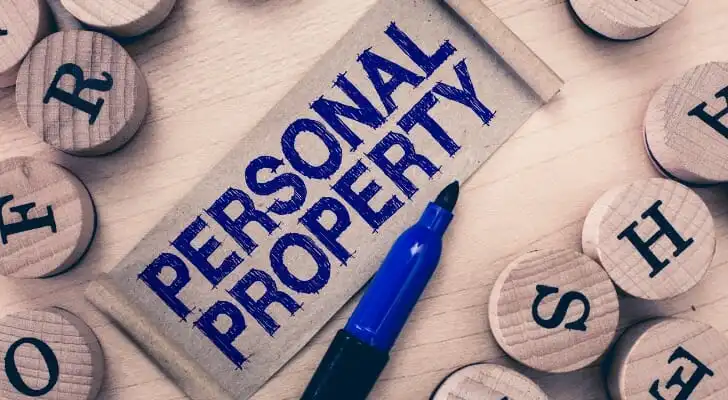Tangible personal property refers to physical items that you can touch, move or use, as opposed to intangible assets like stocks, patents or digital investments. It includes everything from household furniture and jewelry to vehicles, artwork and business equipment. Understanding tangible personal property is important for managing taxes, insurance coverage and estate planning, as these assets often make up a significant portion of one’s net worth.
Consider working with a financial advisor as you develop a tax strategy.
What Is Tangible Personal Property?
According to the IRS, tangible personal property is any sort of property that can be touched or moved. It includes all personal property that isn’t considered real property or intangible property such as patents, copyrights, bonds or stocks.
The calculation of your tangible personal property (TPP) is primarily used for taxation purposes. In fact, 43 states use an appraised TPP value when calculating state taxes on personal property, business property or both. The only states that exclude tangible personal property from taxation altogether are:
- Delaware
- Hawaii
- Illinois
- Iowa
- New York
- Ohio
- Pennsylvania
The process of levying taxes on tangible personal property varies wildly from one state to the next, and may even vary between different counties and local municipalities. Additionally, certain types of TPP may be taxed at a different rate than other types, so there is no clear process across the board.
Examples of Tangible Personal Property

As mentioned, tangible personal property is anything that can be touched, moved or consumed, with the exception of real property (real estate) and intangible assets with a recognized value (stocks, bonds, patents and the like). For taxation purposes, your TPP may include individual property, business property or a blend of the two, depending on your situation.
When appraising your tangible personal property, an assessment may include your:
- Motor vehicles
- Clothing
- Jewelry
- Electronics
- Collectibles
- Fine art
- Watercraft
- Aircraft
- Furniture
- Equipment
- Machinery
- Inventory
Tangible personal property is taxed ad valorem. This means that taxes are assessed according to the item’s perceived fair market value.
So, if your county taxes your personal motor vehicles each year, your tax bill will be based on the perceived market value of the vehicle. They will use the vehicle’s make and model, manufacture year, mileage and condition to determine what it’s potentially worth for taxation purposes.
This might not be what you could actually sell it for today. However, this is what your state, county or local municipality believes the value to be according to their data.
How Tangible Personal Property Values Are Used
If your city or county assesses personal property taxes, they may require that you submit a disclosure of your property. They will then value your property, usually using a fair market value chart or table.
You’re more likely to encounter tangible personal property taxes if you own a business, however. Most business owners will need to disclose the property they hold (such as machinery, inventory, office furniture and more) as well as the year it was purchased.
Depending on the item, the nature of your business, when the item was purchased and other factors, you may be taxed on the fair market value of your TPP. This is especially true if your total TPP value exceeds a specific number.
Bottom Line

Tangible personal property values are taken into account for both personal and business tax purposes. This includes property that can be touched, moved or consumed and excludes real or intangible property. Tangible personal property taxes are typically assessed at the state level, though they may be dictated by county, city or local municipality. The taxable amount is determined by factors such as fair market value and the item’s age.
Tips on Tangible Personal Property
- Consulting with a financial advisor can help you prepare for any applicable TPP taxes and even reduce your taxable amount. Finding a financial advisor doesn’t have to be hard. SmartAsset’s free tool matches you with vetted financial advisors who serve your area, and you can have a free introductory call with your advisor matches to decide which one you feel is right for you. If you’re ready to find an advisor who can help you achieve your financial goals, get started now.
-
Property taxes in America are collected by local governments and are usually based on the value of a property. The money collected is generally used to support community safety, schools, infrastructure and other public projects. Use SmartAsset’s property tax calculator to better understand the average cost of property taxes in your state and county.
Photo credit: ©iStock.com/Artur, ©iStock.com/Pete Martin, ©iStock.com/vm
